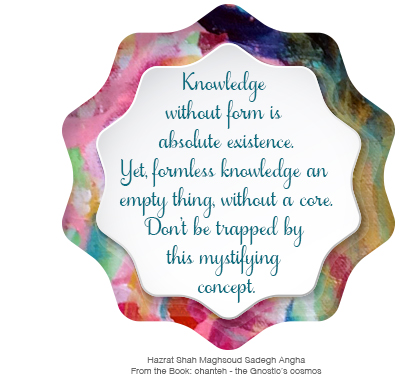Underlying Unity of all
Abrahamic Religions
History - Part I
All three major Abrahamic religions of Judaism, Christianity, and Islam are direct spiritual descendants of Abraham, and their practices are tied to the traditions of Abraham. In his book Muhammad: His Life Based on the Earliest Sources 1, Carl Lings narrates the life of the Prophet of Islam. He recounts in the very first chapter how Abraham was “the fountain-head of two spiritual streams,” through his sons Isaac and Ishmael.
For Jews and Christians, Abraham is, through Isaac, the ancestor and father of their religion. For Muslims, the direct lineage to Abraham is through Ishmael. Muslims consider themselves as Milat Ibrahim (The people of Abraham.) The Holy Qur'an states:
أَمْ كُنتُمْ شُهَدَاء إِذْ حَضَرَ يَعْقُوبَ الْمَوْتُ إِذْ قَالَ لِبَنِيهِ مَا تَعْبُدُونَ مِن بَعْدِي قَالُواْ نَعْبُدُ إِلَـهَكَ وَإِلَـهَ آبَائِكَ إِبْرَاهِيمَ وَإِسْمَاعِيلَ وَإِسْحَقَ إِلَـهًا وَاحِدًا وَنَحْنُ لَهُ مُسْلِمُونَ
You bear witness that when death was approaching Jacob, he said unto his sons: "Whom will you worship after I am gone?" They answered: "We will worship thy God, the God of thy forefathers Abraham and Ishmael and Isaac, the One God; and unto Him will we surrender ourselves. (Qur'an - 2:133)
The Bible 2 .. tells us that Abraham was childless, without hope of children, and that one night God summoned him out of his tent and said to him: “Look now towards heaven, and count the stars if thou art able to number them. “And as Abraham gazed up as the stars he heard the voice said: “So shall thy offspring be.” (Genesis 15:5)
Abraham’s wife Sarah was then an old barren woman and Abraham himself advanced in age; and she gave her handmaid Hagar, an Egyptian that he might take her as his wife. But bitterness of feeling arose between them, and Hagar fled from the anger of Sarah and cried out to God in her distress. And he sent to her an Angel with the message: “I will multiply thy seed exceedingly, that it shall not be numbered for multitude.” The Angel also said to her: “Behold, thou art with child, and shalt bear a son, and shalt call his name Ismail; because the Lord hath heard thy affliction.” (16:10-11) Then Hagar retuned to Abraham and Sarah and told them what the Angel had said; and when the birth took place, Abraham named his son Ishmael, which means “God shall hear.”
When the boy reached the age of thirteen, God spoke to Abraham again and told him: “As for me, behold, my covenant is with thee, and thou shalt be a father of many nations,” (17-4), and “And I will establish my covenant between me and thee and thy seed after thee in their generations for an everlasting covenant, to be a God unto thee, and to thy seed after thee.” (17:7)
Then God promised him that Sarah also should bear him a son who must be called Isaac. Fearing that his elder son might thereby lose favor in the sight of God, Abraham prayed: “O that Ishmael might live before Thee! And God said to him: “As for Ish'mael, I have heard you; behold, I will bless him and make him fruitful and multiply him exceedingly; he shall be the father of twelve princes, and I will make him a great nation.” (17:20-21)
Sara gave birth to Isaac and when he was weaned she told Abraham that Hagar and her son must no longer remain in their household. Abraham was deeply grieved by this, on account of his love for Ishmael; but again God spoke to him, and told him to follow the counsel of Sarah, and not to grieve; and again He promised him that Ishmael should be blessed.
Therefore, two spiritual streams, two centers in the orbit of Abraham were working toward uniting mankind. Not one but two great nations were to look back to Abraham as their father - two great nations, that is, two guided powers, two instruments to work the Will of Heaven, for God does not promise a blessing which is profane, nor is there any greatness before God except greatness in the Spirit. Abraham was thus the fountain-head of two spiritual streams which lead to the ocean of unity.
